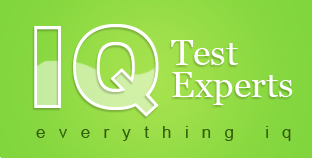Prediction Power of IQ
The IQ Index
The term IQ, or Intelligence Quotient, is a yardstick to assess the subject's cognitive ability as compared to the general population. Cognitive ability corresponds to your general ability to solve problems and understand concepts. This includes reasoning ability, problem-solving ability and ability to perceive relationships between things and ability to store and retrieve information.
Experts opine that for the most part people, who excel in one category, similarly do well in the other categories, and if someone does poorly in any one category, he also does poorly in the others. Based on this, these experts theorize there is one general element of intellectual ability that determines other specific cognitive abilities.
Since IQ tests measure your prehensile and comprehensive abilities and not the quantity of your knowledge, gobbling new information does not automatically increase your IQ. Learning may exercise your mind, however, which could aid honing your cognitive skills, but this relationship is not yet pellucid. The nexus between learning and mental ability is still foggy, as are the workings of the brain and the nature of intellectual ability.
A lot of critics point out that IQ tests don't measure creativity, social skills, wisdom, acquired abilities or a host of other things we consider to be aspects of intelligence. There is a high positive correlation between IQ and success in school and the work place, but there are many, many cases where IQ and success do not coincide.
IQ and Job Performance
IQ is a mirage when it comes to predicting someone's performance on any given job. It gives you no clue about that person's drive or self-mastery, efficiency and effectiveness, their ability to collaborate or empathize, integrate or lead a team, let alone their ethics.
IQ also predicts well what kind of job a person can attain and maintain It gives a vague incite as to whether a person has the prowess to become an astrophysicist or will end up slogging like a sales clerk.
Once a person is in a job, other abilities hold more ground than their ability to take IQ tests. This is why hundreds of studies have found that IQ predicts job performance best (though not all that well) at the start of a person's career, and progressively weakens over the course of that career.
Here's a summary of data on the trivial value of IQ as a predictor of job performance, a dirty little secret that has been well-known within psychology for decades.
The relation of IQ to exceptional performance is rather frail in many arenas. For scientists, engineers and medical doctors the correlations between ability measures and occupational success are only around 0.2, accounting for only 4% of the variance. More generally, prediction of occupational success from psychometric tests is not a runaway success. In a review of more than one hundred studies, Ghiselli in 1966 found the average correlation between success-on-the-job measurements and aptitude-test scores to be 0.19. Aptitude/IQ tests can predict performance immediately after training with an average correlation of 0.3, but the correlation between performance after training and final performance on the job is a mere 0.2. Parallel research has reported verisimilar findings.
Competency Models
Top notch firms design their own "Competency models", which guide them during recruiting new people in the organization. These models specify a set of skills which an individual must possess to bag the post offered by the company. These skills sets pertain to the job at hand. Some of them are listed below:
- The drive to learn, grow and continually improve performance.
- The prowess to lead one's own self. In other words, being creative, innovative and not just restrict to following orders.
- Conceptual thinking: the potential to identify underlying problems and address them, recognize the key actions that will make a difference, spot errors and make essential rectifications.
- Analyzing capabilities
- Taking initiative and being self-dependent.
- Self-confidence.
So you see besides IQ there are a million other factors which must be taken into account to get a wholesome view of job performance.
In sum, a high level of cognitive talent can be your entry ticket to a dream job, though not necessarily for every job (Excellence in managerial and leadership positions, for instance, demand high emotional intelligence abilities) but a whole lot of other factors play a crucial role to continue and progress in it.
Related Articles
"There is a thin line between genius and insanity. I have erased this line".
- Oscar Levant
Genius are not made or created, they are born. You must have come across this phrase sometime or the other in your lifetime.
Real geniuses are those who invent things and expand our understanding, knowledge and abundance, they really shape the world we live in. Geniuses plunge into their chosen work and leave an indelible mark on the world with their brilliance, creativity and innovation. Famous geniuses become like guiding stars in the firmament of your mind.
Correlation Between IQ and Success
Is a superlative IQ mandatory for achieving success? High IQ is peremptory for scaling high in life? Unravel the truth...
A handful or even lesser of our ever exploding population are vouched with a versatile IQ. Then why the world is not ruled by those with two hundred plus IQs? If IQ was of such overwhelming importance, this particular minority should have ruled the roost, right? But that isn't the scene. Have these questions ever crossed your mind?

